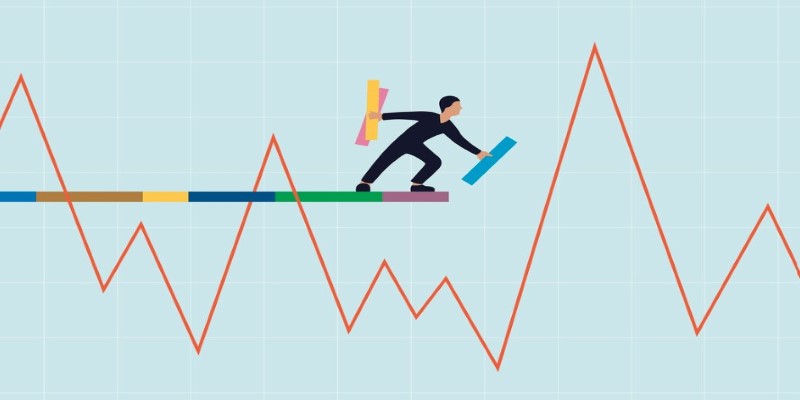The world of investing can be divided broadly into two key markets: the bond market and the stock market. These two markets play crucial roles in the global financial system and offer distinct opportunities and risks for investors. While both aim to grow wealth, they do so in fundamentally different ways.

Understanding the differences between these markets is essential for making informed investment decisions, especially in 2024, where market dynamics are more complex than ever. This article will dive into the bond market and stock market, exploring their unique characteristics, advantages, disadvantages, and key differences to help you decide which might be better for your financial goals.
The bond market, often referred to as the debt or credit market, is a financial marketplace where participants buy and sell debt securities, primarily in the form of bonds. A bond is essentially a loan made by an investor to a borrower, usually a corporation or government. In return for the loan, the borrower agrees to pay back the principal amount on a set date and make periodic interest payments until the maturity date. The bond market is generally less volatile than the stock market, making it a preferred choice for risk-averse investors seeking steady income.

The bond market offers several benefits that appeal to a wide range of investors. First, bonds provide consistent and predictable income through regular interest payments, known as coupon payments. This makes bonds a reliable option for income-focused investors, especially retirees. Additionally, government bonds, in particular, are considered low-risk investments, providing safety and capital preservation. Bonds can also serve as a hedge against stock market volatility, offering portfolio stability during economic downturns. In 2024, where economic uncertainty is a recurring theme, bonds continue to be seen as a safer haven.
However, the bond market isn't without its downsides. One of the primary drawbacks is the relatively lower return compared to stocks. While bonds provide stability, the gains are typically modest, especially for government bonds. Inflation is another concern; fixed-income securities like bonds may lose purchasing power in an inflationary environment. Additionally, interest rate risk can impact bond prices. When interest rates rise, bond prices generally fall, potentially leading to losses if bonds are sold before maturity. In 2024, with interest rates fluctuating globally, bond investors need to remain vigilant.
The stock market is a dynamic marketplace where shares of publicly traded companies are bought and sold. When you buy a stock, you're purchasing a small piece of ownership in a company, along with the potential to share in its profits. The stock market is known for its potential for high returns, especially over the long term. Stocks are traded on exchanges like the New York Stock Exchange (NYSE) and NASDAQ, where prices fluctuate based on supply, demand, and overall market sentiment.
The stock market is known for its growth potential. Historically, stocks have outperformed most other asset classes over the long term, making them an attractive option for investors seeking wealth accumulation. Stocks also offer liquidity, allowing investors to buy and sell shares easily. Moreover, stocks provide an opportunity to earn dividends, which are payments made by companies to shareholders from their profits. The ability to benefit from capital appreciation and dividends makes stocks a versatile investment. In 2024, with technological advancements and evolving business models, the stock market continues to present numerous opportunities for growth.
Despite the potential rewards, the stock market comes with significant risks. Stocks are volatile and can experience sharp price fluctuations due to market sentiment, economic changes, and company-specific events. This volatility can lead to significant losses, especially in the short term. Unlike bonds, theres no guaranteed return in the stock market; poor investment choices or economic downturns can lead to substantial financial losses. Additionally, the stock market is heavily influenced by global events, and in 2024, factors like geopolitical tensions, economic shifts, and technological disruptions make stock investing increasingly unpredictable.
The bond market and stock market serve different functions and appeal to different types of investors. One of the most significant differences lies in risk and return. Bonds are generally lower-risk, offering predictable returns through interest payments, while stocks provide the potential for higher returns but come with increased risk and volatility.

Another key difference is ownership versus lending. When you invest in stocks, you become a partial owner of the company, benefiting from its growth and profits. In contrast, bondholders are lenders, receiving regular interest payments without ownership stakes in the borrowing entity. This distinction also influences how these investments perform during different economic conditions. Stocks tend to perform better in strong economic climates, while bonds offer stability during downturns.
Liquidity and trading mechanisms also differ between the two. Stocks are typically more liquid, with shares easily traded on major exchanges throughout the day. Bonds, especially those issued by governments, can also be liquid but are generally traded in over-the-counter (OTC) markets rather than on exchanges. Additionally, the impact of interest rates is more pronounced in the bond market; rising rates typically lower bond prices, while the stock markets reaction to interest rates can be more complex.
Lastly, tax considerations differ. In many cases, interest income from bonds is taxed differently than dividends from stocks, influencing an investor's net returns. In 2024, these tax rules and how they interact with an individuals financial situation can play a significant role in determining the best investment choice.
Deciding between the bond market and the stock market depends largely on your financial goals, risk tolerance, and investment horizon. The bond market offers stability and predictable income, making it ideal for conservative investors focused on capital preservation and income generation.
On the other hand, the stock market provides greater growth potential and is better suited for those with a higher risk appetite and a longer-term investment strategy. In 2024, with markets shaped by technological changes, economic uncertainties, and evolving global dynamics, both bonds and stocks continue to play essential roles in diversified portfolios.

By Kristina Cappetta/Sep 04, 2024

By Nancy Miller/Sep 04, 2024

By Verna Wesley/Sep 03, 2024

By Gabrielle Bennett /Sep 04, 2024

By Juliana Daniel/Sep 03, 2024

By Madison Evans/Aug 29, 2024

By Kristina Cappetta/Oct 03, 2024

By Darnell Malan/Aug 30, 2024

By Isabella Moss/Aug 30, 2024

By Alison Perry/Sep 04, 2024

By Jennifer Redmond/Sep 04, 2024

By Maurice Oliver/Aug 29, 2024